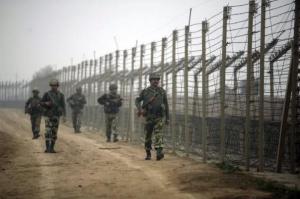
The Chief of Staff of the Pakistani Army in January 2015 has repeatedly stated that there was unprovoked firing by the Indian Border Security Force (BSF) using heavy weapons in various sectors of the LOC. It was stressed that the Pakistani Rangers opened fire strictly for defensive purposes.
Condemning the actions of the Indian BSF, Pakistan’s Foreign Ministry has repeatedly expressed strong protest to the Government of India. The Adviser to the Prime Minister on National Security and Foreign Affairs A. Aziz sent a letter to the Minister of Foreign Affairs of India to investigate the circumstances under which two Pakistani Rangers were killed, conduct an impartial investigation, and bring those guilty of committing this crime to justice in order to maintain peace and tranquility.
The main accusation of the Indian side, which amounts to the characterization of Pakistan as the “main stream of terrorism”, in turn has been completely refuted by Islamabad.
Border clashes have intensified in recent months, burying hopes by the head of the federal government of Pakistan Nawaz Sharif of improving relations with India after the election in May 2014 of Prime Minister Narendra Modi.
It all started nicely. Then in May 2014, at the invitation of the Indian Government, the Pakistani Prime Minister Nawaz Sharif flew to New Delhi for the inauguration of his colleague in New Delhi. One of the Islamabad’s “gifts” was the release of several dozen Indian fishermen detained in Pakistani prisons. Later, the parties agreed to resume negotiations initially through the Ministries of Foreign Affairs. The date was set – August 25, 2014. At the last minute the Indian side “without explanation” (according to Islamabad) unilaterally canceled the meeting.
The precedent for New Delhi’s rejection of negotiations was the meeting of the High Commissioner of Pakistan in India Abdul Basit with the leaders of Kashmir. These events took place against a background of sporadic skirmishes on the Pakistani-Indian border in Kashmir.
In September 2014 at the UN General Assembly Nawaz Sharif once again, as in the 1990s, called for a solution to the Kashmir crisis according to UN resolutions.
The former ruling (2008-2013) party, the Pakistan People’s Party (PPP) avoided raising the Kashmir issue as a priority in the dialog with New Delhi. On the contrary, in 2011-2012, it called to “freeze” it and resolve some technical issues – visa issues (providing an expedited visa regime for certain categories of citizens of both countries), transport issues (bus routes in Kashmir), and several others. There was a specific reason for this – many issues had gone unsolved for years.
Having come to power in Pakistan in May 2013, the administration of Nawaz Sharif called this course “ineffective” and began to discuss the Kashmir issue. In September 2014 at the UN General Assembly the head of Pakistan again called on the world community to implement the resolutions of the UN in this area.
Despite the claims of the Chief of Army Staff of Pakistan General R. Sharif, that the federal army is able to adequately and promptly respond to internal and external threats, the army was trying to avoid direct armed conflict with India. The large-scale military operation to eliminate insurgents in the northwest of the country in a number of agencies of the Federally Administered Tribal Areas (FATA) on the border with Afghanistan has involved large troop movements and heavy military equipment. Unlike previous years, in 2014 the army decided to continue the military operation in North Waziristan in the winter period (2014-2015). A military campaign on the eastern frontier, in the direction of India would require significant material, financial, and other resources, a redeployment of troops, etc. The army could not afford it.
In order to reduce tension, Islamabad has taken a number of diplomatic initiatives, drawing international public attention to the “peaceful” settlement of the Kashmir crisis. This has had a definite short-term effect.
Despite the broad unfolding in Pakistan of an anti-terrorism campaign involving many civil state institutions and the federal army, the general staff has already started talking about the developed plan for the return of internally displaced persons (about one million) to the tribal areas. This is confirmed by the imminent completion of the military operation of the federal army in the FATA, which will free up the necessary resources for its efforts on the eastern border.
It appears that a significant role in the reconciliation, or rather, in the temporary reduction of tensions in the Pakistani-Indian conflict, may be played by China. Positioning itself as a regional stabilizing force, it is making a turn towards the development and strengthening of strategic cooperation with regional powers (including, in particular, the settlement of a number of issues with India) and with partners in international economic alliances.
Natalya Zamaraeva, Ph.D., Senior Research Fellow, Pakistan Institute for Near-East Studies, exclusively for the online magazine “New Eastern Outlook”.
